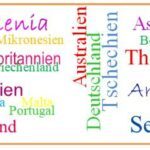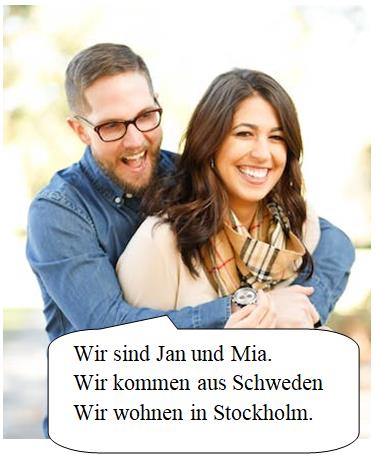In this lesson you will find vocabulary for greetings, what to say when you first time meet people and introductions in German, and not only vocabulary but also short dialogues that you can easily learn yourself, which is the goal of this post.
Thank you for reading this post, don't forget to subscribe!CONTENTS
Greetings
Greetings in Austria
Greetings in Switzerland
Introducing People
Getting to know someone
Greetings / Begrüßungen
| Guten Morgen! | Good morning! |
| Guten Tag! | Good day!/ Good day! |
| Guten Abend! | Good evening! |
| Gute Nacht! | Good night! |
| Auf Wiedersehen! | Good bye! |
| Tschüs! | Bye bye! |
| Hallo! | Hello! |
| Bis bald! | See you soon! |
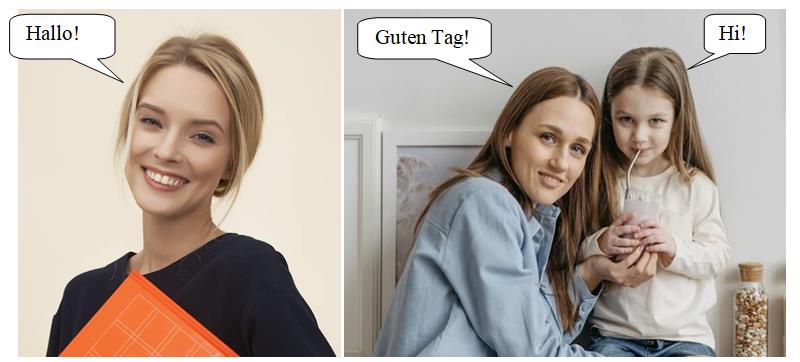
Greetings in Austria/ Begrüßungen in Österreich
| Grüß Gott! | “God bless (you)” is a common greeting mainly used in Austria and Bavaria. In the rest of Germany, the common greeting is “Guten Tag.” It is equivalent to the English “Hello” or “Good morning” and is a normal greeting. |
| Servus! | “Servus” is a common greeting in Bavaria and Austria. It is a shortened form of the Latin phrase for “I am your servant,” similar to the English “at your service.” This greeting is used to say “hello” and “goodbye.” |
Greetings in Switzerland
| Grüezi! | The Swiss-German expression “grüezi” is equivalent to “hello” in English. Another common greeting is “Grüezi mitenand” which means “Hello everyone”. The word “grüezi” originates from the phrase “Ich grüsse Sie” or in some dialects “Grüessech”, which translates to “I greet you”. This greeting is used in formal situations and can be used at any time of the day. It’s important to note that “grüezi” is used when addressing someone formally, using “Sie” instead of “du”. |
| Hallo/ Hi! | Hello/ Hi! |
Introducing People
| Ich bin … | I am… |
| Ich heiße … | My name is … |
| Mein Name ist … | My name is … |
| Das ist … | This is … |
| Ich wohne in … | I live in … |
| Ich komme aus … | I come from … |
| Ich lebe in … | I live in …… |
| Ich studiere in … | I’m studying in … |
When you’re unsure, you can always use the verb ‘leben’ to express ‘to live.’ On the other hand, ‘wohnen’ is only used when referring to ‘residing’ and is specifically used in the context of residence or place of living. It’s a more common term than the English verb ‘to reside.’
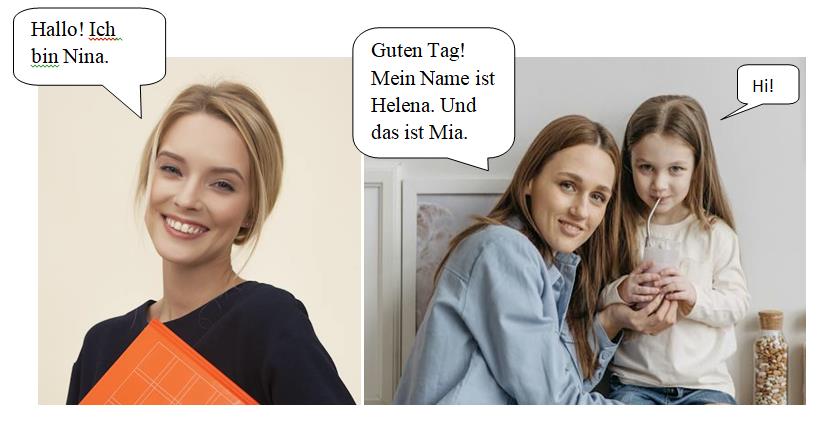

Getting to know someone / Kennenlernen
| Entschuldigung! | Excuse me! |
| Das ist …. | This is … |
| mein Kollege … | my colleague … |
| meine Kollegin… | my colleague … |
| Frau | Mrs./ Ms. |
| Herr | Mr. |
| Freut mich! | Nice to meet you! |
| Freut mich auch! | Nice to meet you too! |
Just unlike English, the German language distinguishes between masculine and feminine nouns by using distinct endings for each. In German, feminine nouns typically take the ending -e for adjectives and -in for nouns.
For example:
meine Kollegin
alte Lehrerin
neue Studentin
When using the word “Frau” on its own, it simply means “woman”. However, if you use it as a title, you need to add either a surname “Frau Mayer” or an academic degree “Frau Doktor”.
Similarly, “Herr” is used to address a God when used on its own.
If you’re in search of a German equivalent for “Ma’am” or “Miss” in a British school or “Sir”, it would correspond to German “meine Dame” and “mein Herr”. However, it’s important to note that in German, these terms are considered outdated and you would never address a teacher using them.
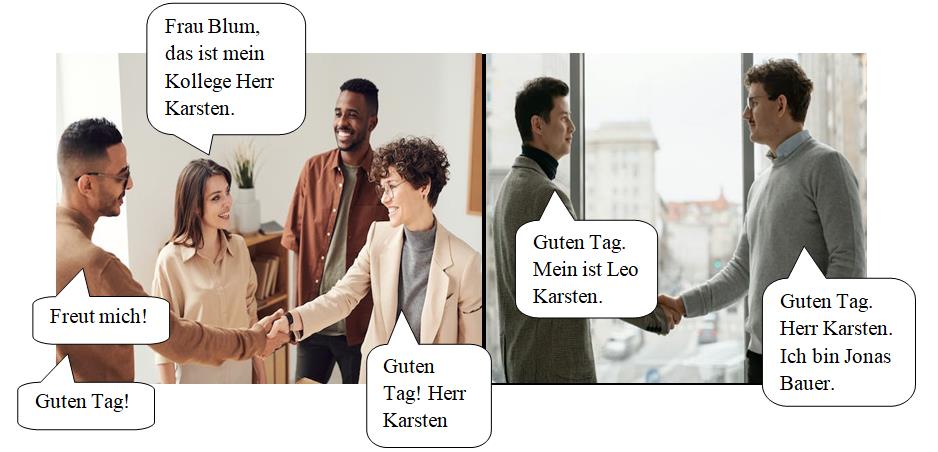

See more:


